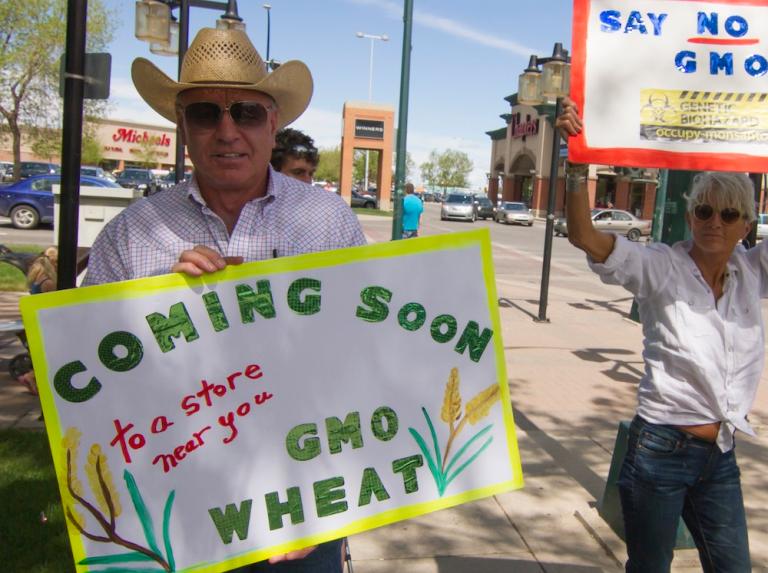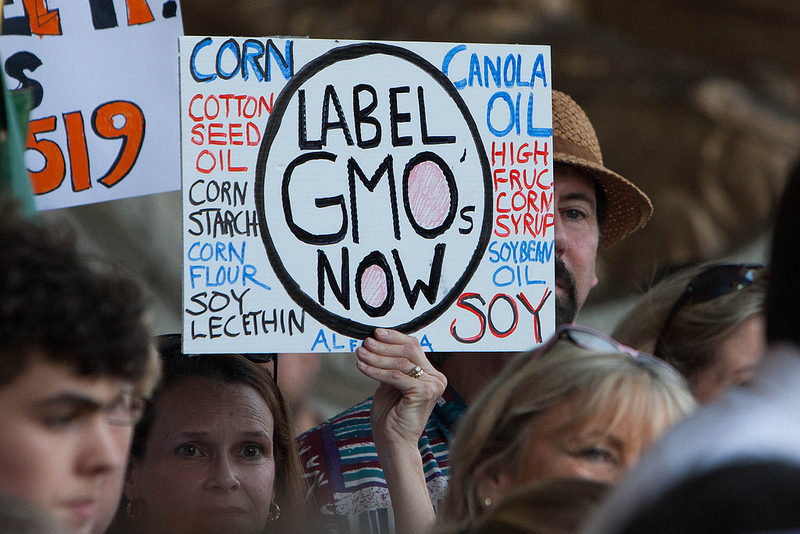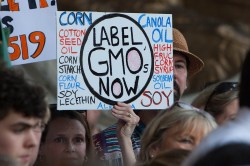Connecticut is poised to become the first state to require labeling of genetically engineered food — in theory, at least.
On Monday, the state House of Representatives passed an amended version of a labeling bill that the state Senate approved two weeks ago, and Gov. Dannel Malloy (D) has said he’ll sign it. The bipartisan bill passed unanimously in the Senate and 134-to-3 in the House, with little debate in either chamber — a major contrast to California’s contentious GMO-labeling ballot initiative that ultimately failed last year. Differences between the two states aside, it goes to show you how much more difficult passing such progressive measures becomes once corporate money and gullible voters are involved.
The Hartford Courant’s political blog reports that “Immediately after the vote, cheers could be heard outside the Hall of the House from advocates who had been pushing the labeling requirement.” The bill’s success is certainly an important victory for the GMO-labeling movement, which seems to have been motivated, not discouraged, by last year’s loss in California. Thirty-seven labeling proposals have been introduced in 21 states so far this year.
But the final version of the Connecticut bill includes quite a crucial catch: The labeling requirement won’t actually go into effect until similar legislation is passed by at least four other states, one of which borders Connecticut. Also, the labeling adopters must include Northeast states with an aggregate population of at least 20 million. So if, say, New York passed a labeling law, that would help a lot, as New York borders Connecticut and has a population of 19.5 million, which, combined with Connecticut’s 3.5 million, easily passes the population target.
This “trigger clause” is meant to allay fears that Connecticut could suffer negative economic impacts by going it alone — higher food prices and lawsuits from major food companies. Lawmakers are counting on safety in numbers, and hoping their state’s precedent will encourage others to follow suit. The Connecticut Post reports:
“Somebody has to go first and say it’s OK to do it with some kind of trigger,” [Senate Minority Leader John McKinney (R-Fairfield)] said. “This gives great momentum for advocates in Pennsylvania and New York, for example, for GMO labeling, because if they’re successful in New York we’ll probably see it along the entire East Coast.”
OK, Pennsylvania, New York, and all those other states considering GMO labeling: It’s on you now.





